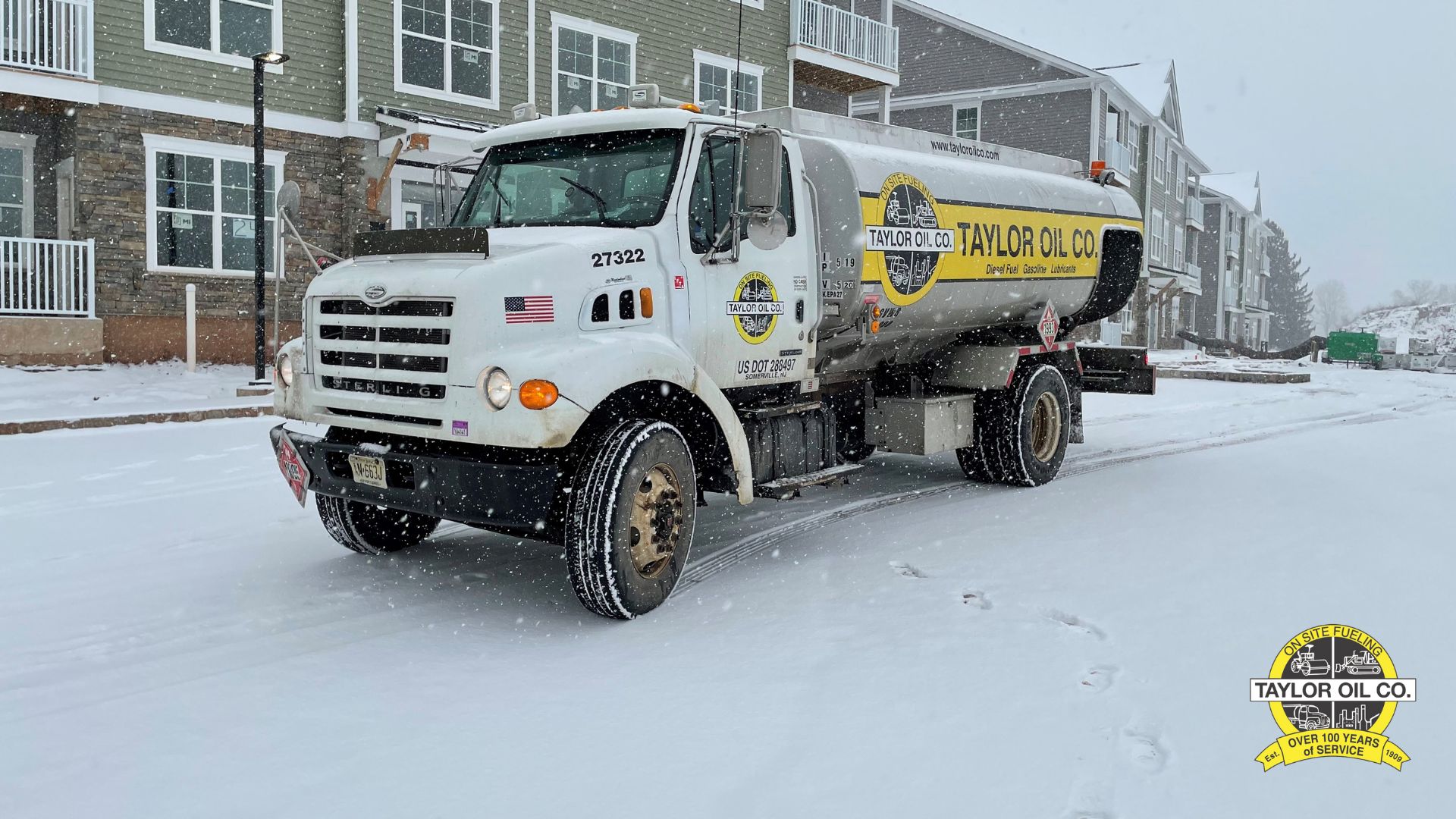Top 3 Tips for Storing Fuel Over the Winter – With the weather in the Northeast getting colder and colder as we progress through November, you’re likely thinking long and hard about how you will keep your home warm till spring – especially in light of rising fuel prices. If you are faced with the need to store fuel at your house, it’s important to preserve it properly so it doesn’t spoil or freeze.
Download our Fuels & Fluids Winter Guide – click here
Keep these three factors in mind before you decide to store fuel for the winter.
1. Consider Container and Tank Material
First you have to think about the type of tank or container you will need. If you’re new at the fuel storage thing, you have two options: metal or plastic. Metal containers are more durable and can withstand higher temperatures than their plastic counterparts. In addition, metal won’t warp or deform over time, so it’s better for long-term storage.
That said, metal containers are more expensive than plastic. They also conduct heat, which means they’re dangerous to handle if they aren’t properly insulated. Metal containers may rust or corrode with exposure to untreated fuel. Plastic containers, while lighter and cheaper options, aren’t as durable as metal and tend to break down over time with sunlight or high-temperature exposure.
2. Prepare Your Container and Tank
Before storing fuel, it’s important to prepare your tanks for the new fuel. You’ll have to clean the containers and tanks, as the presence of dirt, debris, or water can result in issues if the fuel freezes. Now, you will have to fill the containers and tanks as much as you can, as a full tank or container reduces the amount of air inside. Too much air leads to condensation, and thus water in the fuel. Store the containers and tanks in a warm area to keep the fuel from freezing. If this isn’t possible, add insulation to the tank or container to reduce the chance of heat loss.
3. Consider Fuel Additives
Depending on what kind of fuel you decide to use, research which additives will help you preserve quality through the winter months. Diesel fuel, less volatile than gasoline, won’t evaporate as much or as quickly. It also provides more fuel flow consistency to your generator. In addition, diesel won’t condense as readily.

Top 3 Tips for Storing Fuel Over the Winter – With the weather in the Northeast getting colder and colder as we progress through November, you’re likely thinking long and hard about how you will keep your home warm till spring – especially in light of rising fuel prices. If you are faced with the need to store fuel at your house, it’s important to preserve it properly so it doesn’t spoil or freeze.
Keep these three factors in mind before you decide to store fuel for the winter.
1. Consider Container and Tank Material
First you have to think about the type of tank or container you will need. If you’re new at the fuel storage thing, you have two options: metal or plastic. Metal containers are more durable and can withstand higher temperatures than their plastic counterparts. In addition, metal won’t warp or deform over time, so it’s better for long-term storage.
That said, metal containers are more expensive than plastic. They also conduct heat, which means they’re dangerous to handle if they aren’t properly insulated. Metal containers may rust or corrode with exposure to untreated fuel. Plastic containers, while lighter and cheaper options, aren’t as durable as metal and tend to break down over time with sunlight or high-temperature exposure.
2. Prepare Your Container and Tank
Before storing fuel, it’s important to prepare your tanks for the new fuel. You’ll have to clean the containers and tanks, as the presence of dirt, debris, or water can result in issues if the fuel freezes. Now, you will have to fill the containers and tanks as much as you can, as a full tank or container reduces the amount of air inside. Too much air leads to condensation, and thus water in the fuel. Store the containers and tanks in a warm area to keep the fuel from freezing. If this isn’t possible, add insulation to the tank or container to reduce the chance of heat loss.
3. Consider Fuel Additives
Depending on what kind of fuel you decide to use, research which additives will help you preserve quality through the winter months. Diesel fuel, less volatile than gasoline, won’t evaporate as much or as quickly. It also provides more fuel flow consistency to your generator. Diesel won’t condense as readily on cold surfaces. That said, both fuel types will need additives such as fuel stabilizers, anti-freeze, and anti-gel, with gasoline requiring more additives than diesel.
Fuel freezing is the biggest challenge associated with storing gasoline in the winter. Fuel expiration is another big challenge. Fuel stabilizers will prevent the fuel from breaking down, forming gums and sediments that can clog fuel lines.
Anti-gel prevents fuel from gelling in cold weather, and anti-freeze prevents the formation of ice in the fuel tank. This is why these additives are so important.
If you plan to store fuel this winter, you must follow these fuel storage tips for safe usage and longevity. To get more information on our fuel tank rentals for the best results, contact us today!
y on cold surfaces. That said, both fuel types will need additives such as fuel stabilizers, anti-freeze, and anti-gel, with gasoline requiring more additives than diesel.
Fuel freezing is the biggest challenge associated with storing gasoline in the winter. Fuel expiration is another big challenge. Fuel stabilizers will prevent the fuel from breaking down, forming gums and sediments that can clog fuel lines.
Anti-gel prevents fuel from gelling in cold weather, and anti-freeze prevents the formation of ice in the fuel tank. This is why these additives are so important.
If you plan to store fuel this winter, follow these fuel storage tips for safe usage and longevity. To get more information on our fuel tank rentals for the best results, contact us today!
Taylor Oil Co serves contractors and fleet operators from Boston to Washington, DC.


